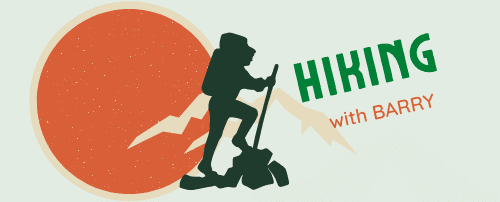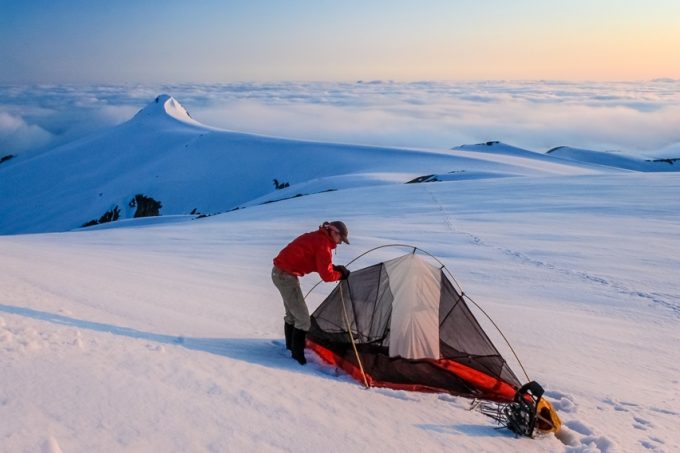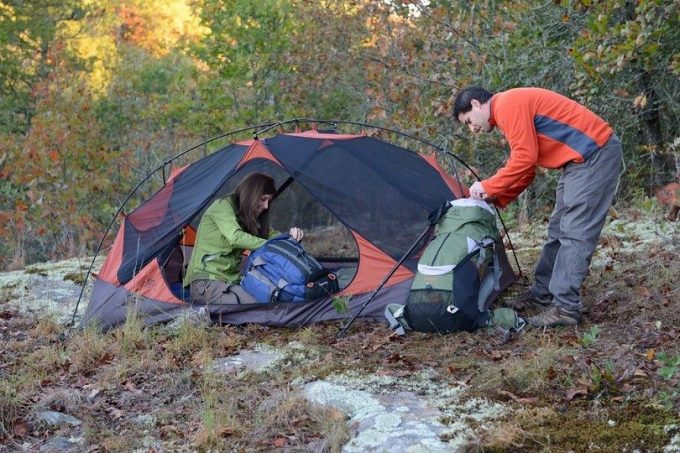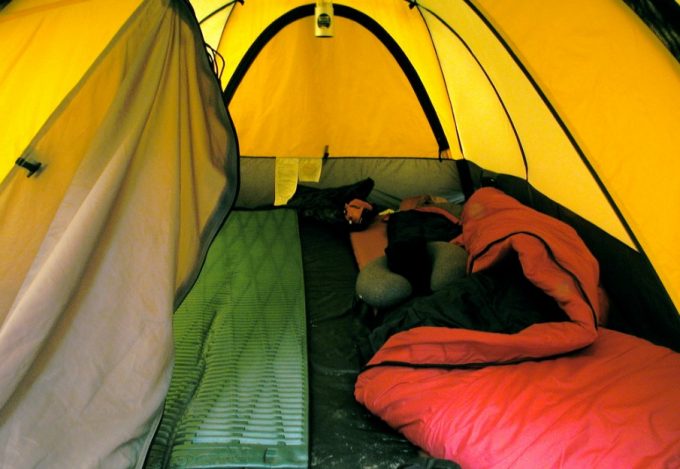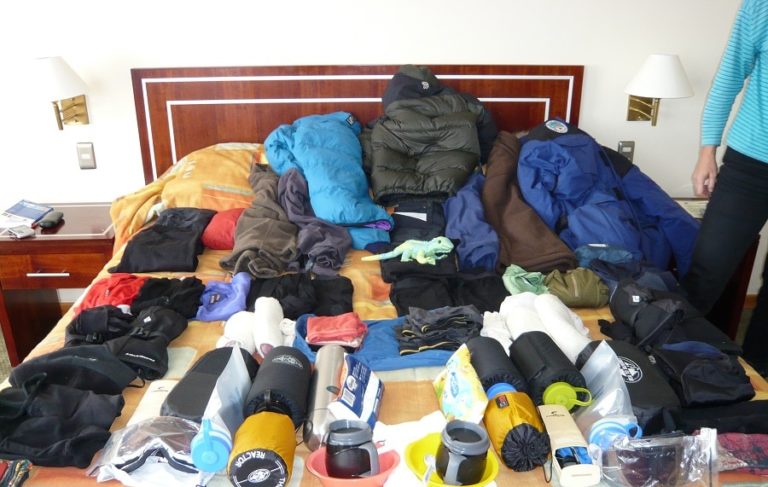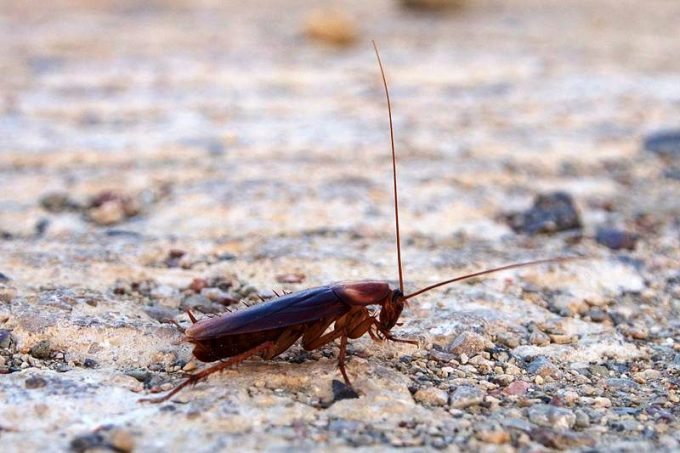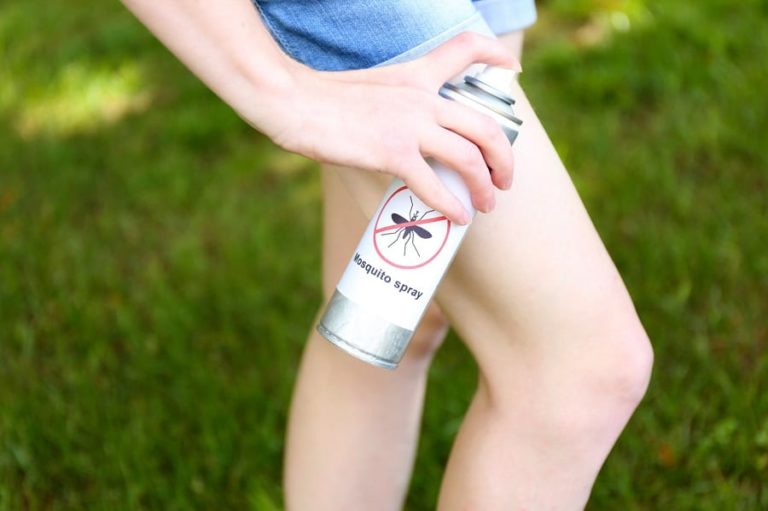Car Camping Tips: How to Keep Organized for a Stress-Free Getaway
The idea of packing for your next camping trip can be stressful – to say the least! If you’re always stressing about what to pack and how to pack it and yet you still end up forgetting things, don’t worry – there are plenty of car camping tips out there to help.
There are many ways to pack for a camping trip to help make it stress-free. With a little bit of patience, planning and a lot of organization, you can become an expert car camping packer. In no time at all, you can get yourself and your gear organized and pack for your adventure.
That is why we’ve decided to give you a hand. Here are just a few tips, tricks, and strategies that you can use to pack for your next and maybe, best stress-free camping trip ever.
Compartmentalize Your Camping Gear
If you already keep your gear stored away in easy to find and clearly labeled bins, boxes or even reusable grocery bags, you are on your way to getting yourself organized for car camping. The most important thing to remember is to compartmentalize your gear.

In other words, don’t throw your camping dishes in the same bin as your ropes – try to keep things sorted by use. Here are a few examples of ways that you can pack your gear.
Kitchen Bin or Mess Kit
Call it what you want, but this is the bin that will hold everything you need to cook like an outdoor gourmet chef. Pack pots and pans, dishes and any other utensil you will need to prepare and eat your food – and make sure to have enough for everyone who is camping with you.
Keep your cooking station clean and sanitized by packing dishcloths and towels, a camping sink and biodegradable washing liquid. Finally, don’t forget your camp stove, spices, and a few extra food storage bags or containers – leftovers are delicious when you are camping.
Utility Kit
This is perhaps the most critical bin to have with you. This is where can house all the tools and safety gear you need to help make a stress free camping trip.
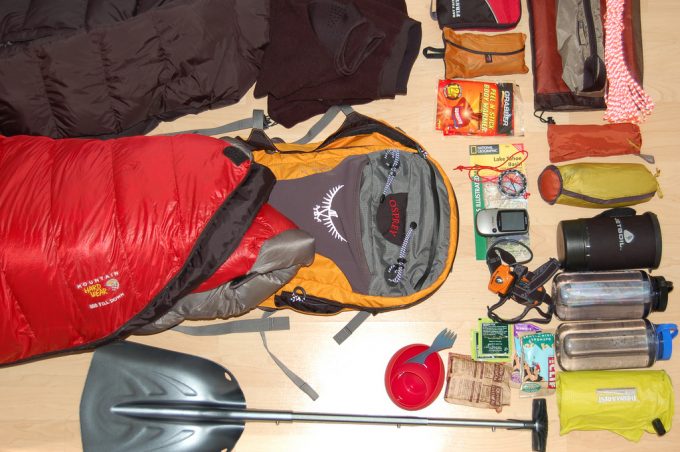
Flashlights, headlamps, and lanterns with extra batteries, of course, will ensure that you’ll have light when the sun goes down. Campfires are a big part of the fun of camping, so you’ll need a hatchet and knife to chop wood and kindling. If you are dealing with damp conditions, some fire starter is useful to have as well.
This is also a good place to pack your emergency kit. For quick repairs keep extra ropes and tarps along with duct tape and a multi-tool. And always keep a well-stocked first aid kit, an emergency blanket, and a whistle in this bin as well.
Leisure Kit
This one is especially important if you are camping with kids. Camping is loads of fun and there always seems to be something to do or to explore, but what happens when for whatever reasons you can’t stray too far from the campsite or are stuck hanging-out under a tarp because of inclement weather?
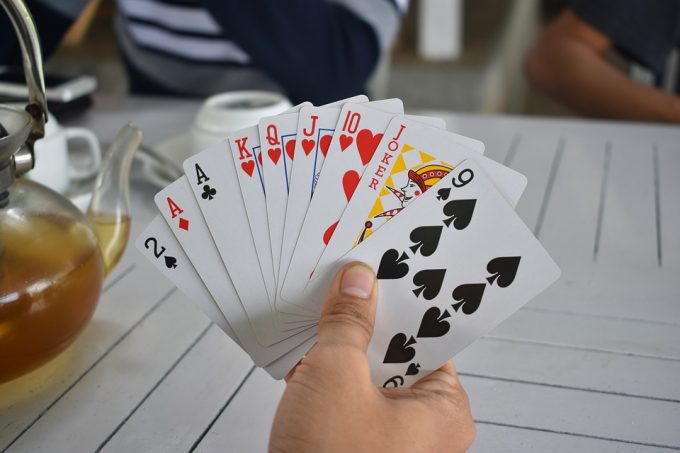
To prevent boredom from setting in for kids and grown-up too, pack this bin with boredom-busting activities like cards, games, books, and crafts. This is also a good place to stash your fishing gear and beach toys and any other fun things you want to bring with you.
Clothing
If you are camping with kids packing extra clothes is essential. It’s amazing just how many socks those little feet go through, and can easily make for a chaotic scene of clothes spread out all over the place.
A simple way to keep clothing organized and dry is to pack each day’s outfit (with spare socks), in clearly marked Ziploc bags. Ziplocs are sold in a variety of sizes, so this can be done with adult clothing as well.
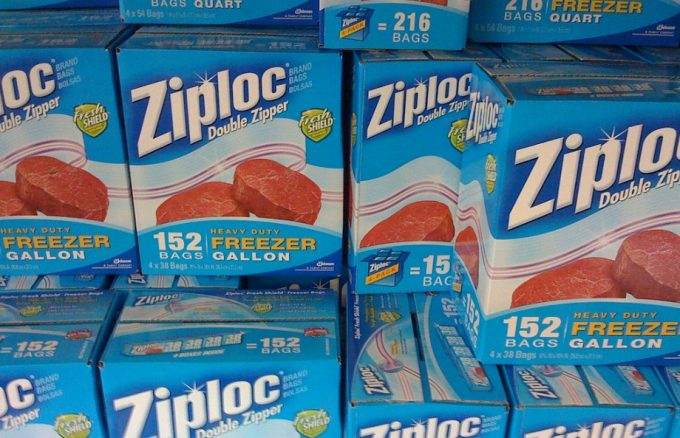
Depending on the space you have in your car, trailer or tent, you can keep these bags in a large tote bin or backpack. Every time you need a change clothes, simply grab the appropriate bag. At the end of the day, the dirty clothes go back into the same bag – this prevents a mountain of laundry from piling up.
Things to Remember Before Packing
Here are a few tips that might come in handy before you start loading the car.
Keep Track of Everything
Clearly mark the outside of each bin with a list of what can be found inside. This makes it easier to find specific items when you need them and to pack the car. At home, keep an inventory list for all your bins as well, that way you can easily replace items after a camping trip and before you put your gear back into storage.
If you organize your gear at the beginning of the season and make a point of keeping the bins (boxes or bags) fully stocked at all times – this will keep you ready for any car camping trip at any time.
Think Before Putting Things in Your Car
Picture this – you arrive at the campsite just as the sun is setting. You have hungry cranky kids in the back seat and ominous rain clouds rolling in from a distance. You quickly decide with your partner that one person will get the supper going, while the other will be in charge of setting up the tent before the rain hits.
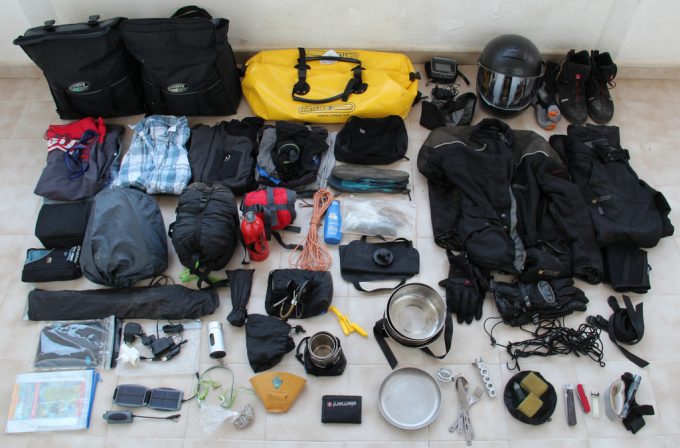
You get out of the car and open the trunk to find a wall of gear – sleeping bags, backpacks, and kids’ toys. By the time you find the items that you need, it’s dark and the rain has begun to fall. You end up setting up in the rain while your kids sit in the car eating junk food. Not the best way to start a camping trip.
So, what’s the solution? Think before you pack the car. Take a few minutes before you load your car to think about the order you will need your gear when you arrive at the campsite. If your first task is to set-up your tent, then try to make sure that it is one of the last things to go into the car to prevent it from getting buried.
Extras to Pack
The last thing we want to think about when planning a camping trip is bad weather, obnoxious bugs or a broken tent pole, but those things can and do happen. Prepare for the worst to make dealing with these or even worse situations a little easier.
One of the great things about car camping is that it allows you to bring a bit more gear than you would normally pack on a backcountry expedition. If you have the space in the car, by all means, throw in an extra tent pole or a pair of cozy slippers for your feet.
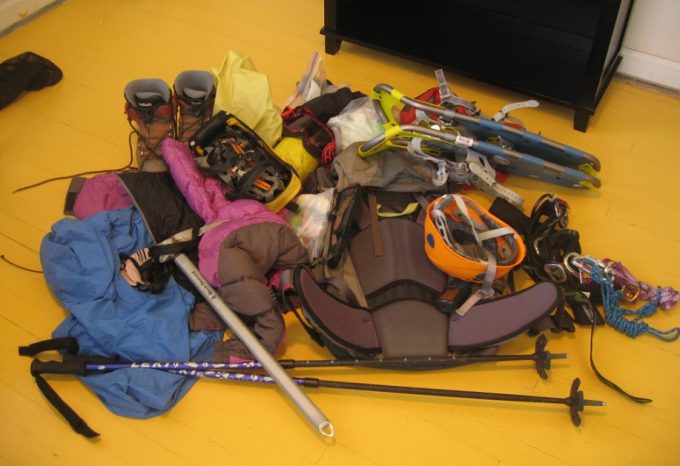
Here are a few “luxury” items that can help deal with those worst-case scenarios:
- A lightweight winter coat for when the temperature suddenly drops – this might be too bulky to bring along on a backcountry trip but if you have room in the car, throw it in!
- Spare sleeping mat – what happens if your beloved Therm-A-Rest springs a leak? Not a problem, you have a spare.
- Board games to keep everyone entertained during bad weather or just because you feel like playing a round or two of Monopoly.
- Extra tarps and rope to make an extra fly for your tent in case of torrential rains
- Rubber boots along with your rain gear make for good puddle jumping and easier navigation through muddy campsites.
What About the Food?
Ok, so we’ve covered the gear and the clothes and by now you’re probably asking yourself – but what about the food? As is with anything else that needs to be packed for car camping, a little organization and planning can help ensure that you eat well during your trip.
When you are camping you don’t want to be worrying about what to make for supper, but you also want to avoid trying to ‘keep it simple’ by just packing hotdogs and chips for all the meals. To make things easy for you and to keep your tummy happy, take some time before you begin packing for your camping trip and plan out your meals.
Have a Meal Plan
The first thing you want to do is think about the kind of activities you will be doing while camping. This will help you to determine what kind of meals to prepare for what days. Don’t plan on making an all-day campfire stew on the day you will be taking a 5-hour hike.
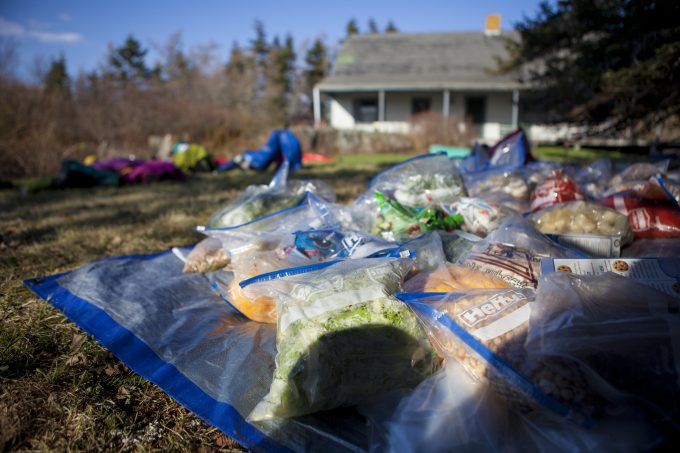
Next, dig out a few tried and true recipes – they do not have to be camping specific – and use those as a jumping off point. If you are a pro at making chili, plan on that for one of your meals. Need some ideas or recipes? You can easily do an Internet search to find thousands of great recipes and meal ideas for your camping menu.
Finally, put pen to paper and write out exactly what you are planning to eat and drink right down to the snacks. This plan will not only help you when you are at the site and getting ready to prepare a meal but also when you are packing.
By writing down exactly what you will be eating you are essentially making yourself a list of food to pack. This also provides good insurance for not forgetting anything – like the ingredients needed for s’mores!
Getting Ready for Rain
You check the forecast before you leave and see that they are calling for sun, sun and more sun. You might be so inclined to not pack your rain gear. That’s a horrible idea!
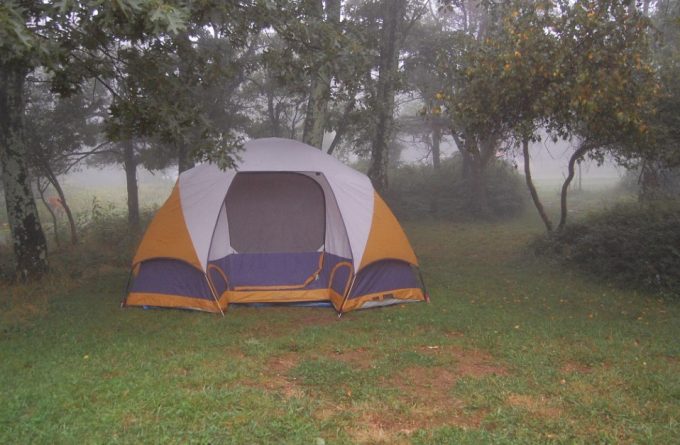
Just because they are calling for a rain-free weekend doesn’t mean that rain will stay away. Weather can be unpredictable and when you are not prepared for it can put a serious damper on a camping trip – even when you have the car for shelter!
How to Pack Your Rain Gear
Make sure to pack all your rain gear including waterproof footwear in a separate bag or bin from the rest of your clothing. If possible try to keep everyone’s rain gear together so that no one finds themselves soaking wet.
Make a note of where the rain gear is packed in the car so that it’s easy to grab when it’s needed. And, speaking of easy to grab, keep a compact umbrella in the tent or trailer, that way if you wake up to rain in the morning, you stay dry as you dash to the car to get the rest of the gear.
Rain can be Fun!
Camping in rainy weather doesn’t have to be hard – in fact, if you are organized and prepared, a rainy day at the campsite can be fun. Rain doesn’t mean that you need to spend the day holed up in your tent or trailer.
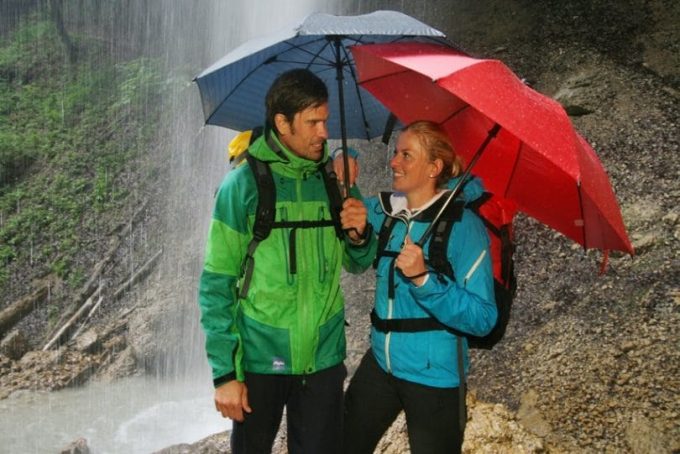
Strategically placed tarps can allow you to roam around the site and stay dry. Rainy days are also the perfect opportunity to break out the card games or the rainy day activities from the leisure bin.
Packing it All Up
Before you run off to get started on your packing here are a few more tips to remember:
- Try it out before you leave home. Set up your tent and test out your stove before you pack everything up for your trip. Sure, you may have packed an extra pole for your tent but what happens if you get to your site only to find out that the zipper is broken? To prevent stress, take the time to needed to ensure that everything is in proper working order
- Don’t assume the water will be potable. Always pack enough water for your entire trip. The last thing you want is to run out of drinking water – especially on a hot sunny beach day
- Lists are essential. Write it down, everything. Keeping a running list of what is packed and what needs to be packed will prevent your brain from becoming overrun with mental to do’s and to pack’s.
Ready to Have Fun?
There you have it – just a just a few ways that you can make packing for a car camping trip a little less daunting. Try them out and see what works for you or perhaps you have found your own personal organizational trick that keeps you on track.
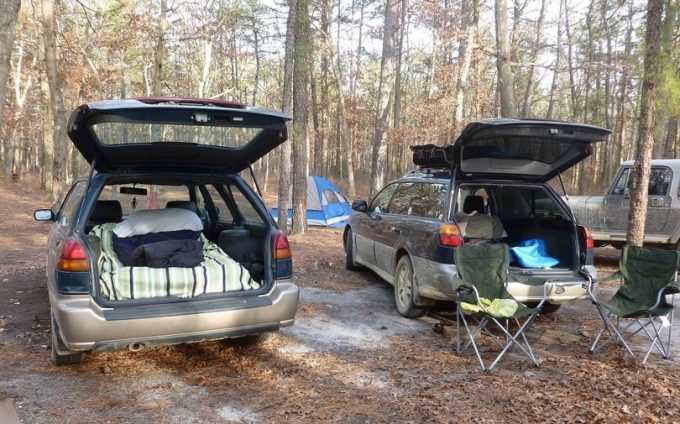
Camping should be fun, an escape from the every day and a chance to truly experience the wilderness. It may take a little bit of effort to get yourself and your gear organized for a camping trip but, once you do, you set yourself up for a stress-free weekend away at the campsite.
Do you have any car camping tips or extra tricks when it comes to organizing? Feel free to share with us in the comments and let us know – we’d be thrilled to hear about them!
